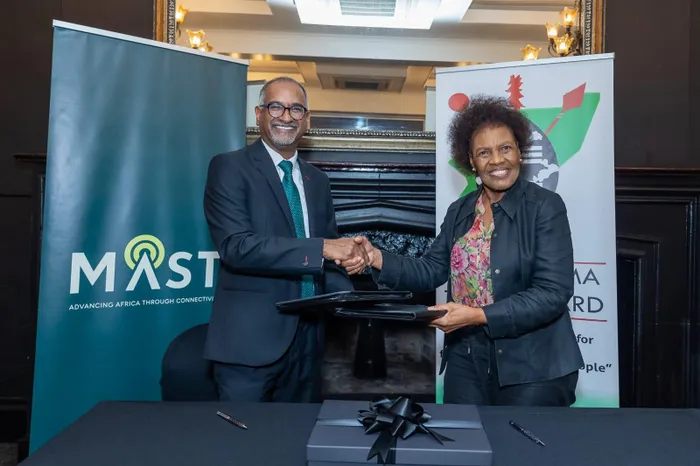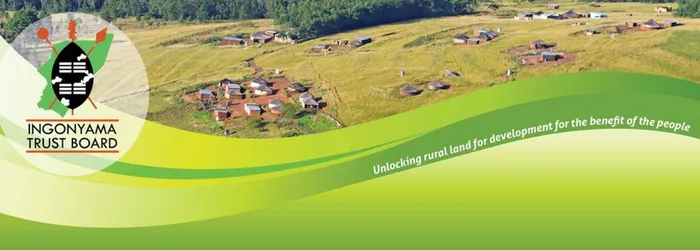Ingonyama Trust opens KZN land for responsible ventures

Gerard Naidoo, executive head: Property Estate Management at MAST, and Advocate Linda Zama, deputy chairperson of the Ingonyama Trust Board, during the signing ceremony between MAST and the Ingonyama Trust.
Image: Supplied
KwaZulu-Natal (KZN) land belonging to the Ingonyama Trust is open for business, but it is not open to businesses such as taverns, as the province only wants socio-economically responsible businesses.
These are the words of Advocate Linda Zama, the Ingonyama Trust Board deputy chairperson.
Last week, Zama led a detailed presentation at the South African Institute of Black Property Practitioners (SAIBPP)’ 2025 Annual Convention, where she opened up the land under the Ingonyama Trust and traditional leaders to potential investors.
"It is unfortunate that people do not understand what the Ingonyama Trust is and what the board is all about. However, that is something we are actively addressing. There is a plan for the Ingonyama Trust to host an Investment Summit in the coming year so that we can tell our story and open our vast tracks of land to investors and businesses," she said.
With the board responsible for administering more than 2.9 million hectares of communal land, Zama said it is important for the board's work to become visible in the eyes of the public, businesses, and traditional leaders who are also the most important custodians of the KZN land.
"The board administers more than 2.9 million hectares of communal land across the province of KZN. Sadly, that big chunk falls under traditional leadership. I say sadly, because this land is underserved in terms of infrastructure and connectivity. I have been quite vocal because we are concerned about poor connectivity.
"After all, that also affects schools, learning, and the general quality of life for our people. Young people, particularly learners, need connectivity to do their work, and, in these times, it is unacceptable to have poor connectivity, and we have been in talks with network service providers in this regard," she said.

A logo of the Ingonyama Trust Board showing land in the background.
Image: Parliament.gov.za
Without connectivity, Zama stated that even doing business and commerce among residents and the private sector becomes a problem, which is why bringing stakeholders such as MTN and Vodacom is a priority for the Ingonyama Trust Board as it seeks to develop the land.
Last month, IOL reported that residents living in rural KwaZulu-Natal can expect better communication with the installation of more than 300 Vodacom towers over three years.
Zama has also revealed that the board is liaising with the network provider.
"Without connectivity, doing business is difficult. Education, enterprise development are poor to such an extent that we are concerned about the proliferation of applications for taverns while we have so many social ills. People think having a business is opening a tavern. That is unacceptable, as there are too many taverns. Why can't we flip things around and bring on board socially responsible businesses... We are in talks with Vodacom to help with connectivity as the board," she added.
According to the trust’s board, the mandate of the trust is to hold land for “the benefit, material welfare, and social well-being of the members of the tribes and communities” living on the land.
While the land was originally “made lawful” by the apartheid government before democracy, the trust had to be amended in 1994 to comply with the country’s Constitution.
Following the recent enactment of the Land Expropriation Act, Zama said the Ingonyama Trust Board has nothing against this policy as it has always been there with no one making noise about what this means for the majority of black South Africans.
"Our view is that Land Expropriation has always been around, and there has been no noise made about this in the past. Many South Africans are not aware that until last year, South Africa had had the Expropriation Act from 1975. Why were they not making a noise?
"We must understand that the land in the hands of the Ingonyama Trust cannot be sold. It is communal land. You can lease it for many years, but one can't dispose of it and it cannot be expropriated by anyone as it is State land and the security is there to protect it," she stated.
siyabonga.sithole@inl.co.za